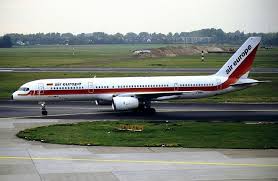
Introduction
The continent of Europe, known for its rich history, cultural diversity, and significant influence on global affairs, is currently navigating various challenges and opportunities. As nations grapple with economic hurdles, political shifts, and social changes, understanding Europe’s position is vital for both its citizens and international observers.
The Current Situation in Europe
As of mid-2023, Europe has been confronted with multiple pressing issues ranging from the aftereffects of the COVID-19 pandemic to ongoing geopolitical tensions, notably due to the Russia-Ukraine conflict. The war, which has entered its second year, has shifted the dynamics of European security and energy policies, forcing countries to reconsider their dependencies and alliances. The European Union (EU) has implemented sanctions on Russia and provided significant military and humanitarian aid to Ukraine, showcasing a level of unity previously unseen during such crises.
In addition to geopolitical challenges, Europe faces economic uncertainties. Inflation rates have surged across the continent, with the European Central Bank (ECB) grappling with the balance between tackling soaring prices while ensuring economic growth. Countries such as Germany and France have initiated various measures to support their economies, but experts warn that a recession may still loom if conditions do not improve.
Social Changes and Migration
Social issues continue to shape the European landscape. The ongoing migration crisis remains a contentious topic as thousands of individuals flee war, persecution, and economic instability in their home countries. Northern European nations are often viewed as favourable destinations, leading to debates about integration, resources, and cultural identity within European societies.
Future Outlook and Significance
The coming years will undoubtedly be pivotal for Europe. Experts predict that the result of evolving political landscapes, especially with upcoming elections in key member states, will have a lasting impact on the EU’s cohesion and future policies. Moreover, the shift towards sustainable energy in response to climate change is likely to drive innovations and investments, presenting both challenges and economic opportunities.
In conclusion, Europe’s journey ahead is marked by uncertainty but also by the potential for resilience and leadership on the global stage. As nations work together to address shared challenges, the importance of solidarity, dialogue, and adaptability will be more crucial than ever, fostering not only a united Europe but also a significant player in shaping the 21st century.
You may also like

Understanding the Current Political Landscape in the UK

Current Events: What’s Happening in Iran

The UKIP Party: Recent Developments and Future Outlook
SEARCH
LAST NEWS
- Remembering Wendy Richard: The Promise to Co-Star Natalie Cassidy
- How Did Anglian Water Achieve an ‘Essentials’ Rating for Mental Health Accessibility?
- Shai Hope Leads West Indies in T20 World Cup Clash Against South Africa
- What We Know About Weston McKennie: Future at Juventus and Past at Leeds
- What We Know About the Upcoming Live Nation Antitrust Trial